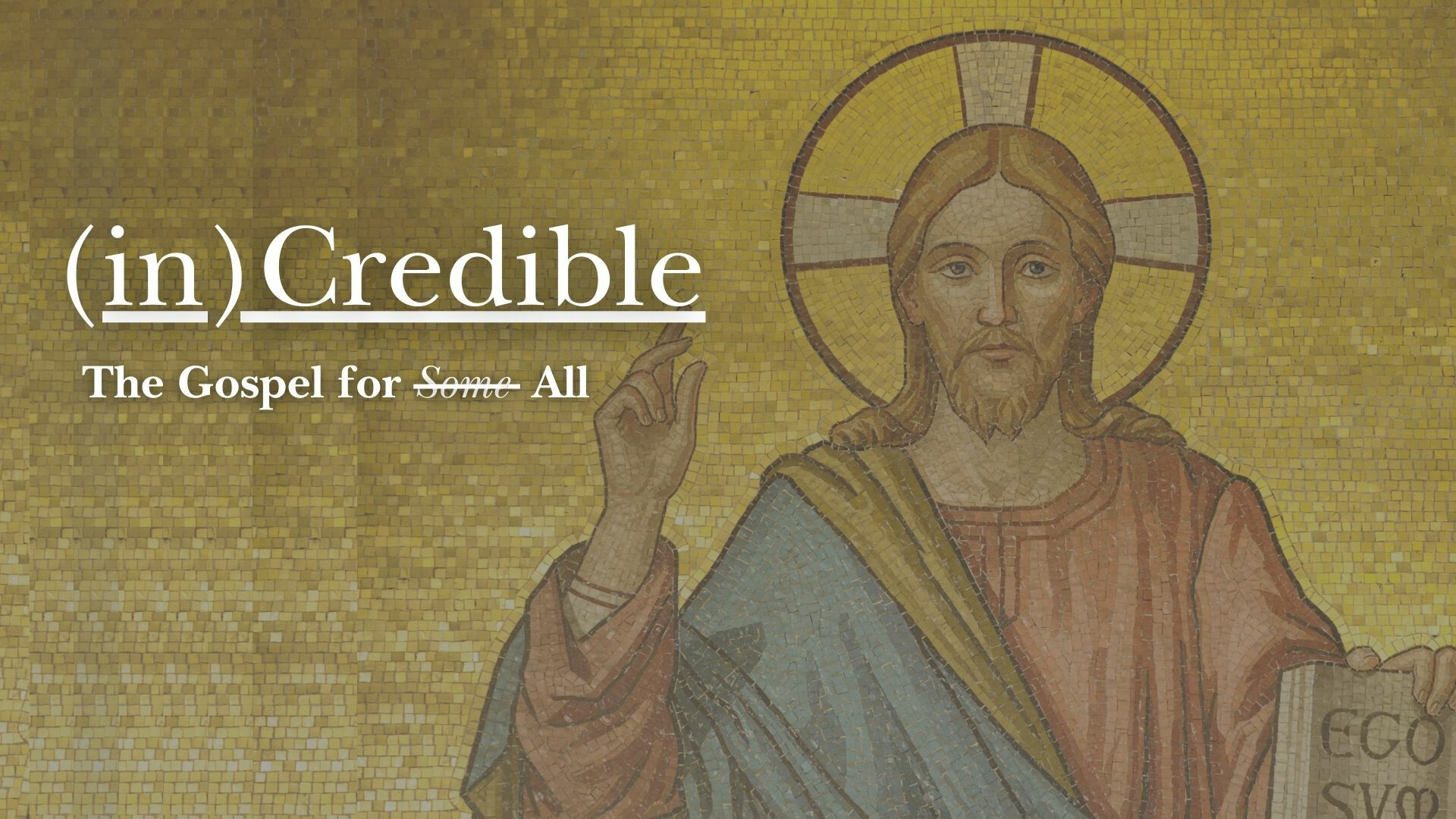Apr 21, 2024
Contact Us
- Phone: (612) 338-6500
- Email:
- Mailing Address: 1501 West 54th Street, Minneapolis, MN, 55419


Any depressed philosophers out there? Have I got a book for you! Anybody facing a bit
of an existential crisis? You are not alone. Ever feel like life isn’t as clear cut and how you’d like
it to be? Keep reading!
Human beings have long searched for meaning in life—answers to some of our deepest
questions: What constitutes a ‘good’ life? What will truly satisfy and provide meaning to my
life? Why does there seem to be such a random nature to things? What is the purpose of life if
we’re all going to die anyway? And what role (if any) does God have in this? These questions
aren’t just for the tortured poets of our society (I see you, Swifties!). They’re for every human
being—from the first-year college student at the start of her career, to the professional facing a
mid-life crisis, to the elderly widow adjusting to the physical limitations of her age. Wouldn’t it
be great if we could hear from someone who had the answers to these questions?
We can! The Book of Ecclesiastes, in the Old Testament, may be an ancient book, but
the truths are timeless. In it, our Teacher—also known as The Critic—shares insights from his
own quest after quest for meaning: the pursuit of wisdom, pleasures—wine, women, and
wealth—a successful career and status, and youth and physical health. In the end, he concludes
that every one of these comes up short…a chasing after the wind. Ecclesiastes is a poignant and
persuasive deconstruction of what doesn’t satisfy.
And yet, contrary to how many people have understood the book, this doesn’t mean
that life has no meaning. The initial cry, ““Meaningless, meaningless, everything is meaningless”
(1:1, NIV) is a bit misleading; “mere breath, a mere breath” is more accurate. Life is fleeting.
Depending on what we’re chasing, it might even be futile. But it doesn’t have to be. In fact, The
Critic would say it is only by seeing each potential substance of fulfillment for what it truly is—a
gift from God that has its limits—that we can truly find the joy and meaning we deeply yearn
for. In fact, once we embrace the cold hard truth about life, life explodes with meaning and we
can truly, “Eat, drink, and be merry” (2:24).
So if a little meaning or merry sounds like something you’d like, if you’re tired of empty
clichés and unsatisfying answers, join us the week after Easter Sunday for our series What Was I
Made For? We will explore some of the greatest teaching from the Bible on a life well lived. My
hope is that you, too, will find The Critic’s voice an indispensable—even if unpopular—one.
Because in the end, once all is set within its proper context and limits, we will see just why
everything matters!
Apr 21, 2024
Apr 14, 2024
Apr 07, 2024

I’ve made a new friend. And I really like him! I want to introduce you to him! Here are some key traits I want you to know before you meet him. First, he’s a thorough, precise historian. Facts matter to him. He’ll often remember important details in a story others leave out. Second, he’s highly respected. He’s a professional…a doctor, nonetheless. He really cares about the physical body and overall health of people. Third, one down-side to him is he can be a bit long-winded, although what he says is pure gold! Fourth, and finally, despite all his previous-mentioned accomplishments, he’s the kind of guy who always brings a generous view of others into the conversation. If we were in the lunchroom of the office and someone’s name came up and people started maligning them, my new friend would likely be the one defending them saying, “Well, I don’t think they’re so bad.” He genuinely has such an inclusive nature. He doesn’t ever want to leave anyone out. Like I said, he’s pretty easy to like!
I’m describing Luke, the author of the books of Luke and Acts in the New Testament, and one of its greatest contributors. His two-volume book—for most scholars agree Luke and Acts were written as one long work—is a unique record of the Story of Jesus and the early church. Paul describes him as “my dear friend Luke, the doctor” in Colossians 4:14 and a “fellow worker” in Philemon 24. Most likely, he was a companion of Paul at various points in his missionary journeys. 2 Timothy 4:11 describes him as a loyal friend who remained by Paul even after others deserted him. He is also the only known Gentile, or non-Jewish, writer of the New Testament. Maybe that explains his bent towards inclusivity?
As followers of Jesus, it’s important every year to immerse ourselves in the Story of Jesus so we remember who it is we are following and why it’s the best way to live. This January through March, leading up to and including Easter, we will be looking at the Story of Jesus through Luke’s perspective. And Luke’s purpose is two-fold: to help us know the “the certainty of the things you have been taught” (1:4)—that it is indeed credible…plausible… believable…compelling, and to make sure we open up this invitation to all people…not just those we think are worthy of it. Luke’s biography of Jesus includes lots of scenes with people generally on the fringe…lepers, tax collectors and sinners, women and children, and Gentiles. My hope and prayer for this series, is that we will find the story of Jesus (in)Credible—both credible in its claims, incredible in its message and ability to transform us, and that we will find both comfort and conviction in the fact that this is the Gospel for Only Some All people.
Mar 31, 2024
Mar 17, 2024
Mar 03, 2024
Feb 04, 2024
Jan 14, 2024
Jan 07, 2024

I’ve said it before, but I’m like a kid in a candy store thinking about all the texts of Scripture we could immerse ourselves in and I could have the privilege of teaching from in our worship services. So why start this fall in Ephesians? Because I have a high regard for pastor, writer, professor of my seminary, and translator of The Message, Eugene Peterson. And in teaching on spiritual formation, he always taught from the book of Ephesians. He said that ever since first teaching a Sunday School class on it in 1965 with three elderly saints Catherine, Betty, and Lucille, he found it to be the text of Scripture that would most comprehensively form his identity as a pastor working in a congregation in which the Holy Spirit was developing a community of saints to “grow up into the full measure of Christ.” (Eph 4: 16)
As I have been immersing myself in this book the last couple of months, I think he’s on to something. We know that “church is the core element in the strategy of the Holy Spirit for providing human witness and physical presence to the Jesus-inaugurated kingdom of God in this world.” (Peterson, Practice Resurrection, 12) We churches are intended to be God’s advertising for the world. The book of Ephesians is the apostle Paul’s most comprehensive book on what churches are to be. It’s the only letter we have in the New Testament that was not written in response to some problem a specific local church was facing. Likely, that’s because it was written not only to the church in Ephesus, but also with the intention of being passed around to all the churches in the area, so they could acquire a clear vision for who they were to become in Christ. If we want to understand who we are as God’s church, Ephesians is a great place to start.
And the vision set before us is clear: maturity in Christ, or “healthy in God, robust in love” (Ephesians 4:16 Msg)—whole and holy (1:5 Msg). What I love about this is that contrary to some perspectives on spiritual formation, the book of Ephesians urges us to have a spiritual life that impacts every aspect of our being: physical, emotional, spiritual, relational, behavioral, vocational, financial, and on and on. Paul is clearly convinced that the way of life God wants for his people…his saints (holiness), is not just good press for God, but also leads to healthy (whole) living. It turns out holiness is related to wholeness…to human flourishing. And couldn’t we all use more of that? As City Church begins this new season of ministry and witness as God’s press here in southwest Minneapolis, it seems fitting to look at this fundamental book on how the Holy Spirit is at work developing a community of saints from people who have found new life in Christ. May God’s vision for church be increasingly a reality among us: for our sake (whole) and His glory (holy).
Dec 10, 2023